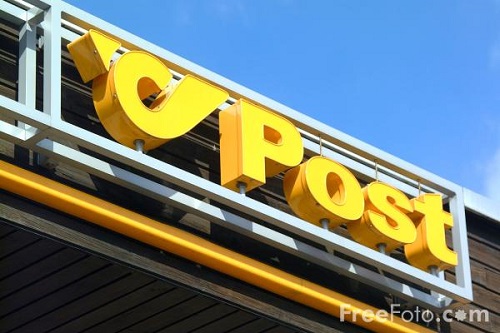
Implications of postal services extending into the Internet
An article by Walter Trezek, CEO of Document Exchange Network GmbH and co-convenor & secretary of CEN/TC331 WG “Postal Services – Hybrid Mail”. The opportunity and the challenge
Posts are evolving into integrated communications services providers. The Universal Postal Union (UPU) has created a three pillar model:
-the classic universal service of letters up to 2kg and parcels up to 20kg
-postal financial services
-secured electronic postal services including postal registered e mail and electronic certification marks
As the declared postal role widens, so the legal and regulatory framework needs to reflect national and global best practices; and access should be granted to all, not just national posts, on an equal and non-discriminatory basis.
Developments so far
The 2004 UPU Bucharest Congress took the first step in extending postal service provision into the internet, culminating in the recent agreement between the UPU and ICANN to sponsor a new top level domain, dot-post (.post). As Ahmed Kada explains in the previous article, this will allow postal operators designated by the member countries of the UPU worldwide to offer new services to their customers, such as hybrid mail, secured and registered services, yellow pages and electronic certification marks. Postal universal service is being extended into the internet, on a global and universal scale.
The posts’ must be in the Internet
Postal service provision is based on trust. The integrity and privacy of correspondence is a fundamental and universal right safeguarded by postal services globally, adhering to highly regulated and standardised principles.
I would argue that the sole purpose of a postal service is to provide an infrastructure which enables global communication. With the advent of Information and Communications Technologies (ICT) the extension of the postal value chain upstream and downstream, and the provision of new services, make the extension of postal services into the internet unavoidable.
The framework, principles and policies developed by the UPU envisage an infrastructure in which the integrity of the document (whether digital or physical), the authenticity of the parties involved (senders and recipients) and the privacy of the communication are secured. All this takes place in an exclusive, regulated environment, provided by postal services globally.
However, there is a challenge here. There are issues to be addressed before we can be confident this brave new world will unfold in the best interests of all.
Unanswered questions:
Is this new development exclusive to designated operators?
Limiting this extension of postal service provision to a pre-selected group of postal service providers, typically the national postal operator in each country, would lead to the creation of a new reserved postal service area. This would contravene policies and regulations.
Postal service providers not designated by UPU member countries must be provided with equal access on a non-discriminatory basis.
What is the legal and regulatory framework?
This needs to be developed and implemented in parallel with the policies drafted by the UPU at the national level.
What are the standards and principles for access to this exclusive postal network on the internet?
These need to be determined so that all postal service providers, designated and non-designated, are given equal access according to clear and transparent status, standards and principles.
Is the UPU as the sponsor of the framework and domain best positioned?
The UPU is going through a major transition period. The 2004 and 2008 Congresses led the way into new services.
In these circumstances the role of the UPU as an inter-governmental organisation driving the extension of postal service provision requires a structural adaptation, with the involvement of those postal service providers who are not currently represented within the membership of the UPU.
The UPU also needs to include technology providers and customer organisations on a wider basis and allow them to play a much more active role in the reshaping of global infrastructure in a way which is fit for purpose to serve everyone in the field of secured communication services.
Yes, posts should and must extend into the internet. But the rules have to change to ensure that there is proper inclusion of all interested parties.













